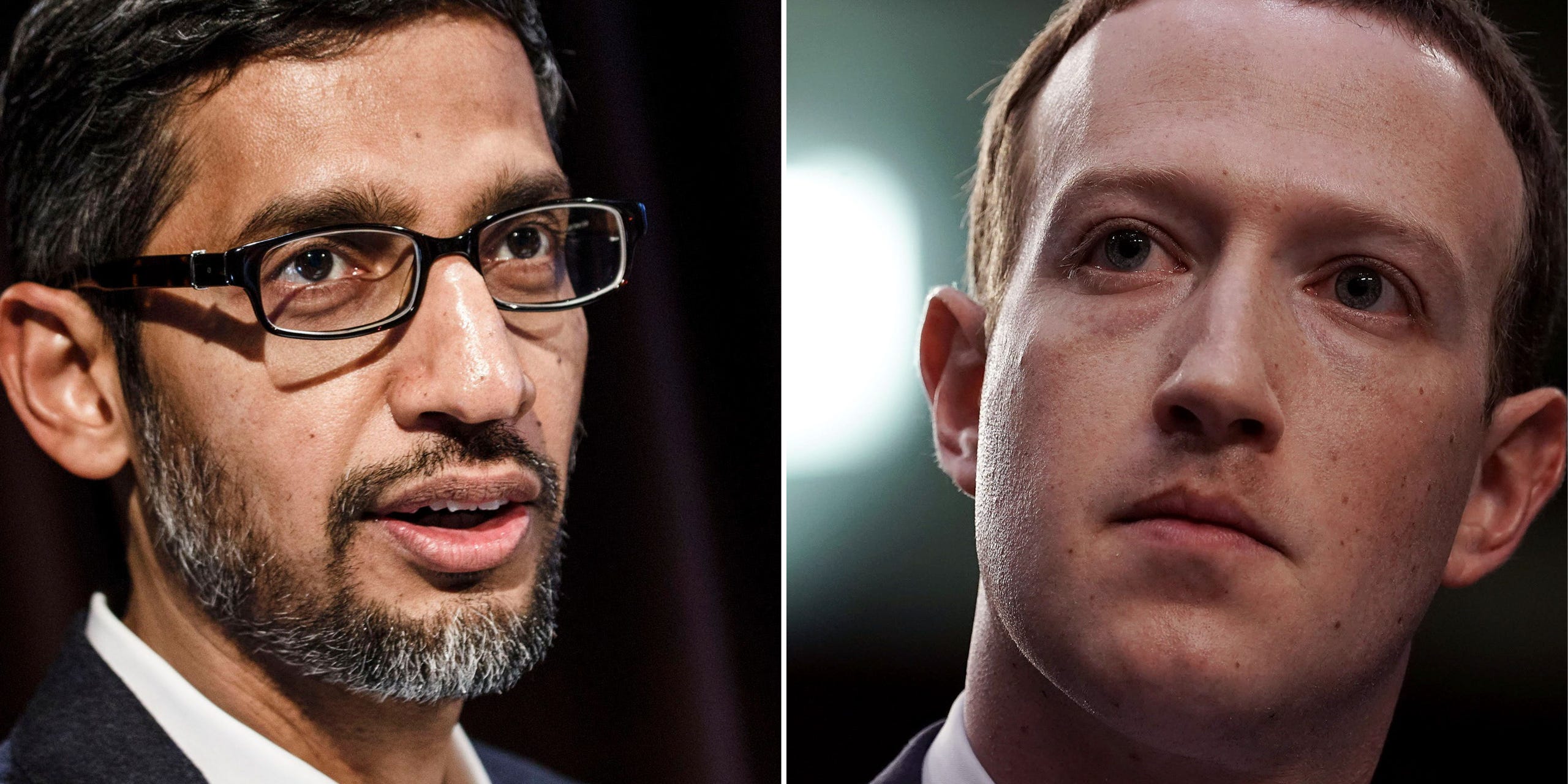
Carsten Koall/Getty Images; Alex Wong/Getty Images
- The UK on Friday introduced a new “pro-competition” watchdog to regulate Google, Facebook, and others.
- The Digital Markets Unit will enforce a new code, adding data-transparency requirements and helping small businesses promote themselves online, according to the announcement.
- Ronan Harris, vice president of Google UK & Ireland, said the search giant looks forward to “working constructively” with the new unit.
- From April 2021, the unit “could be given powers to suspend, block and reverse decisions of tech giants,” the government said.
- Visit Business Insider’s homepage for more stories.
The UK on Friday announced a government unit to enforce a new competition code on Google, Facebook, and other tech giants, beginning in April 2021.
The business secretary, Alok Sharma, said in a statement that companies like Google and Facebook make a “significant contribution” to the UK economy, but “the dominance of just a few big tech companies is leading to less innovation, higher advertising prices and less choice and control for consumers.”
The new Digital Markets Unit, which will launch in April, will work to introduce and enforce a code of conduct for firms that it says have “strategic market status.” The unit “could be given powers to suspend, block and reverse decisions of tech giants,” the government said.
A UK government spokesperson didn’t immediately respond to a request for further detail, including when the code might be finalized or which specific metrics the government would use to decide which companies were classified as “giants.”
In an emailed statement, Ronan Harris, vice president of Google UK & Ireland said: “Online tools have proved to be a lifeline during the pandemic and they can help create a digital, sustainable and inclusive recovery. We support an approach that benefits people, businesses and society and we look forward to working constructively with the Digital Markets Unit so that everyone can make the most of the internet.”
Facebook did not respond to a request for comment before publishing time.
The government said its new unit would work with regulators at Ofcom and the Information Commissioner's Office, but Friday's press release stopped short of detailing the structure of the unit itself.

Reuters
In announcing the unit, which will sit within the Competition and Markets Authority, the government pointed to benefits for both small businesses and publishers.
For small businesses, the to-be-written code will "ensure platforms are not applying unfair terms, conditions or policies to certain business customers," according to the government. Meanwhile, publishers may be limited in how they monetize their content by the actions of search and social companies, the government said.
The release said: "The new code will govern commercial arrangements between publishers and platforms to help keep publishers in business — helping enhance the sustainability of high-quality online journalism and news publishing in the UK."
Every month, Google sends users to news sites 24 billion times around the world, according to its own figures. The company pegs the value of those clicks to UK publishers at about $800 million (£600 million) per year. News publishers using Google Ad Manager keep about 95% of digital advertising revenue, according to Google.
The new code will also seek to update rules for consumers, including how Facebook and Google target ads to individuals. But small businesses may have a more difficult time promoting their products online as consumer control over data increases, wrote Martin Peitz, an economics professor at Germany's University of Mannheim, on Twitter on Friday.
—Martin Peitz (@peitz_martin) November 27, 2020
Peitz said, "There is a trade-off. Consumer control over data: If this leads to less targeting possibilities it becomes HARDER for small businesses to promote their products online."
In a statement, UK digital secretary, Oliver Dowden, said he's "unashamedly pro-tech" and noted that the companies affected by the code bring "huge benefits" to local customers and businesses.
He said: "But there is growing consensus in the UK and abroad that the concentration of power among a small number of tech companies is curtailing growth of the sector, reducing innovation and having negative impacts on the people and businesses that rely on them. It's time to address that and unleash a new age of tech growth."
